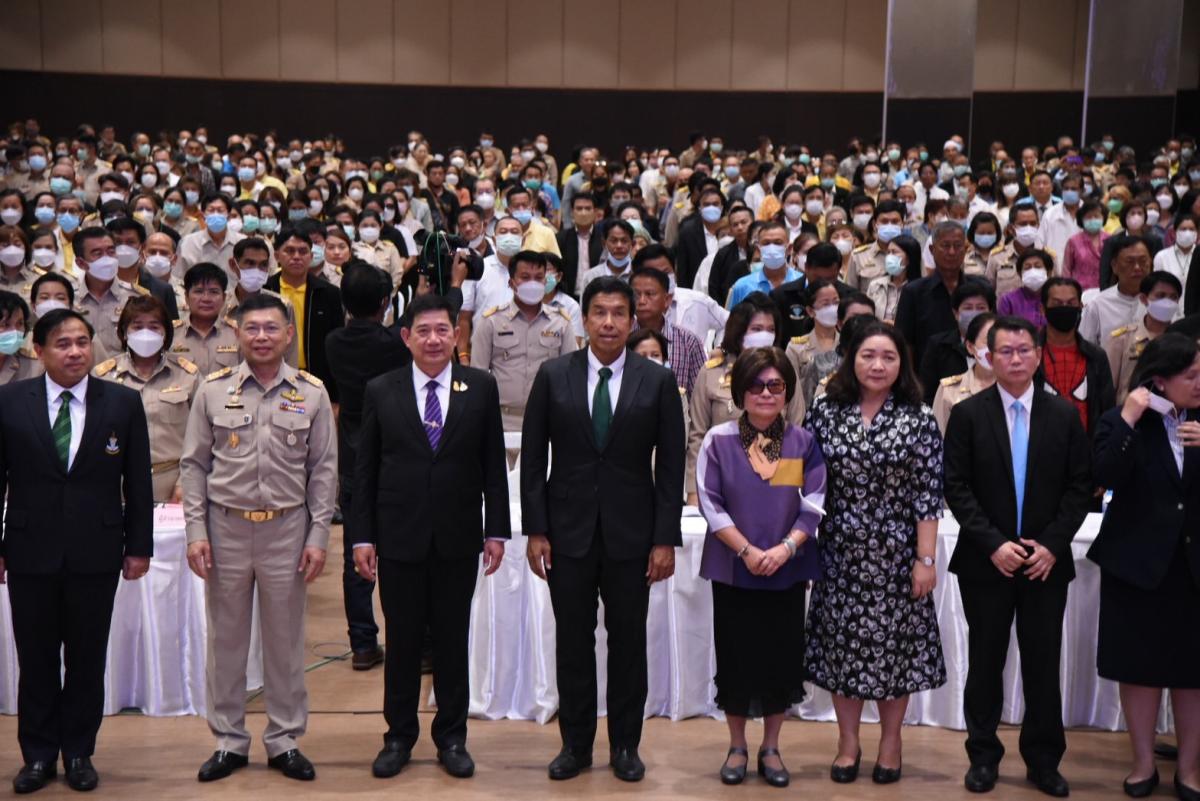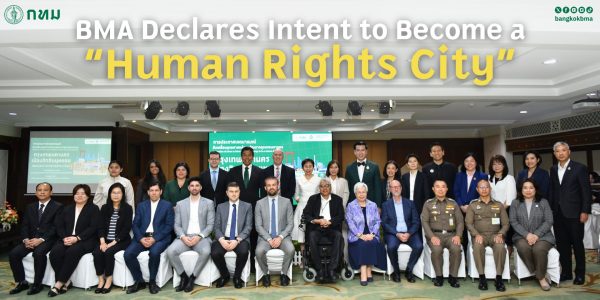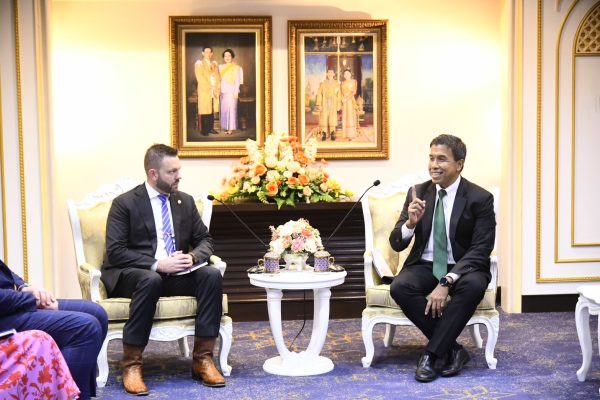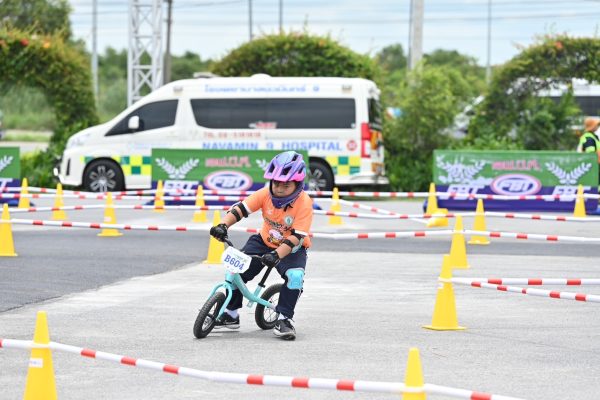Bangkok Metropolitan Administration (BMA) is collaborating with the National Anti-Corruption Commission (NACC) on a campaign to ensure transparent budget distribution at the community level.
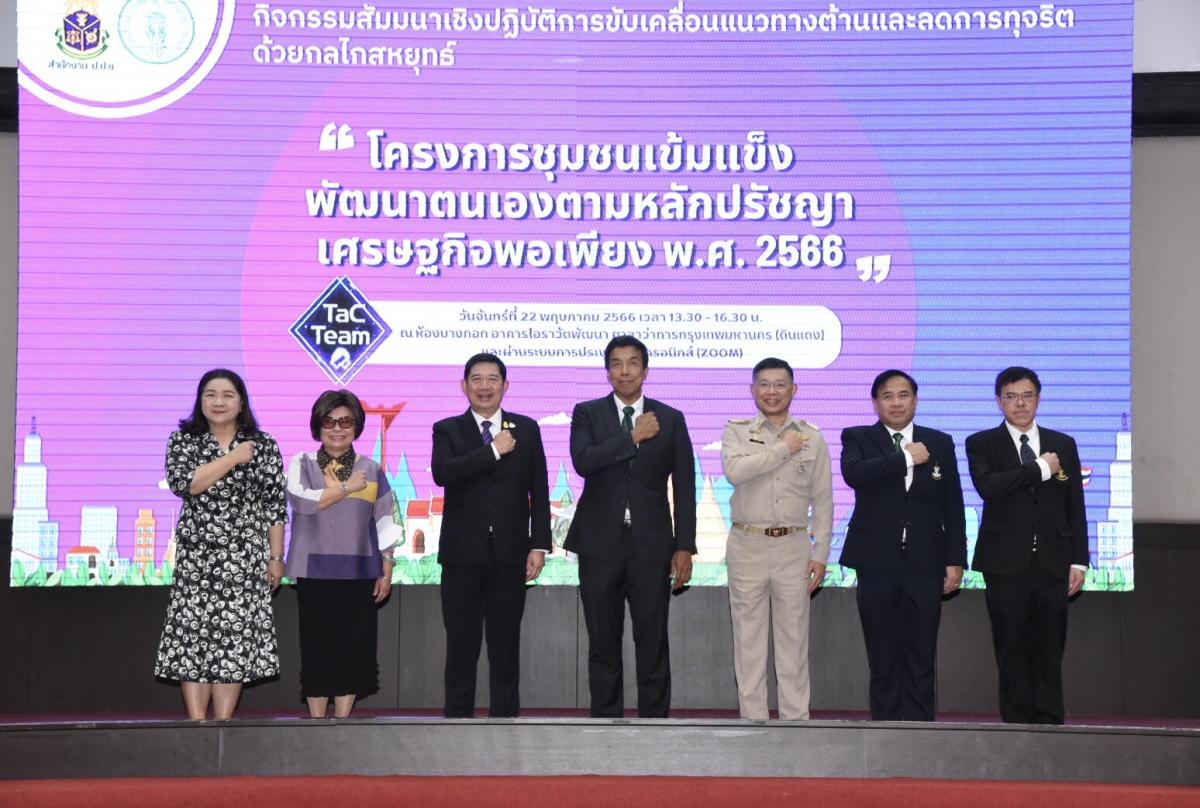
The “STRONG Together against Corruption” campaign, also known as “TaC Team”, launched on Monday with a workshop at City Hall in Din Daeng district and via the Zoom Webinar platform.
Bangkok governor Chadchart Sittipunt and NACC secretary general Worawit Sukboon chaired the workshop, which was attended by BMA permanent secretary Khajit Chatchavanich and his deputy Chaloemphol Chotinuchit.
Organised by the NACC, the “STRONG Together against Corruption” campaign aims to address the risks of corruption at the local administration level, while also enhancing understanding of transparent administration and anti-corruption efforts among state officials and community representatives, the main target groups.
Participants in Monday’s sessions included 600 executives of NACC and BMA from 50 districts (10 persons per district), as well as representatives from 2,014 Bangkok communities, who attended via Zoom.
Governor Chadchart highlighted the importance of the campaign in supporting the city’s policy of participatory budgeting, which allows community members to take part in budget administration in their communities.
“Decentralisation of power to the community level could cause public concern over transparency and compliance with legal procedures, especially regarding the distribution of the 200,000 baht budget earmarked for each community,” he said.
The BMA is therefore coordinating with the NACC to pilot the TaC Team campaign in city areas to ensure that budget distribution can be fully verified by three related parties: City officials, community members, and related private sector agencies, Chadchart said.
The governor expressed the hope that the campaign would be further expanded to other provinces to ensure maximum transparency at the rural level and allow officials to work independently without fear of being pressured by those in power.
The clear regulations on budget disbursement mean that residents can rest assured that the money will be spent for the maximum benefits of their communities, he added.
Chadchart explained that the BMA aims to further use the participatory framework for other aspects, such as in urban planning and development.
“Under this framework, local people will be a focal point in initiating new development projects and tackling problems in their communities, while government agencies and the private sector will provide the necessary support,” he said. “This will be the best way to make Bangkok a livable city, promote residents’ quality of life, and strengthen communities to become more self-reliant.”

